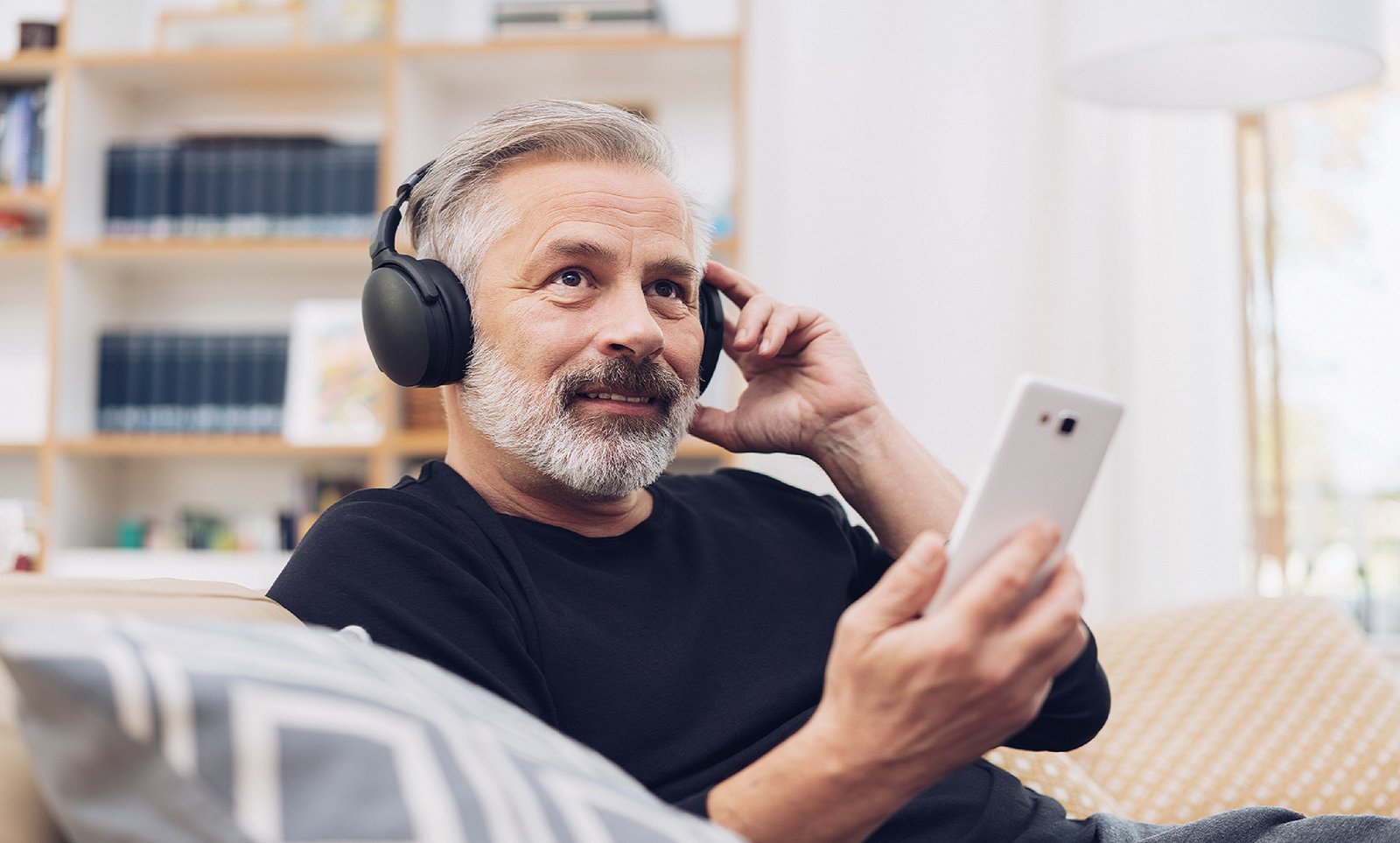Can headphones damage your hearing?
Health TipsSeptember 21, 2022
I had to laugh when my mother told me that she walked into my 25-year-old brother’s study and he almost fell out of his chair when he realised that she was there.
“It happens every time! He can’t hear a thing with those headphones on all day. But I’m worried he may actually be going deaf,” she said, which made me realise that the situation was more serious than humorous.
Hear me out...
For many of us, our headset devices or earpieces act as constant companions for working, studying, travelling or exercising, helping us to feel motivated or more at ease. In fact, a recent study by Cloud Cover Music on over 1 000 American employers and employees found that “most people listened to music while they worked, with around 42 percent listening to some form of media the entire workday.”
What’s more, the research also found that “almost 56 percent of employed people used headphones regularly in the workplace. Interestingly, though, 46 percent put on a pair to avoid conversations at work,” whilst others gave reasons that listening to music at work improved their mood and helped them to stay awake.
Clearly, these devices can be very useful, however what most of us don’t consider are the effects they may have on our hearing.
Listen up!
The Centres for Disease Control and Prevention states that “listening to loud sounds for a long time damages the cells and membranes in the cochlea [inner ear] and can cause hearing loss.”
The three main “key factors that affect whether and by how much a sound will damage your hearing”, according to the National Institute of Health (NIH), “include:
- Decibel level: How loud the sound is.
- Distance: How close you are to the source of the sound.
- Time: The length of time you are exposed to the sound.”
A Swedish study on the use of headphones amongst adolescents, published in the journal Noise Health, reported that those who kept their headphones on for more than three hours on most occasions were more susceptible to tinnitus, a perceived ringing in the ears that is often an indicator of hearing loss.
In addition, experts warn that the use of wireless buds or pods that go inside the ear canal could lead to painful infections and an increased build-up of wax.
Explains Lisa Hellwege, the clinical director of Earworx in an article for Yahoo News Australia: “As with earplugs and hearing aids, earphones sit in the part of the canal where wax is produced and can actually stimulate the production of more wax when they are in use.” While the problem is not the wax itself, it’s the “water trapped behind built-up wax, especially in humid environments [that] can lead to ear infections. Symptoms can include pain, odour, discharge and itching.”
Although most ear infections don’t cause long-term complications, the Mayo Clinic does warn that reoccurring ear infections may lead to “more-significant hearing loss” and should there be “permanent damage to the eardrum or other middle ear structures, permanent hearing loss may occur”.
Hellwege adds that those who make regular use of headsets should give their ears a chance to clean themselves, recommending switching between ear pods and over-ear alternatives and ensuring that devices used daily are cleaned with alcohol wipes.
Sound advice
Help avoid damaging your hearing with these suggestions from the NIH:
- Adjust the volume to no more than 60 per cent of the maximum (between 70 to 80 decibels), which should be enough to hear your music comfortably.
- Refrain from using headphones for longer than an hour at a time or take a break for at least five minutes every hour. Set reminders if you need to.
- Watch out for symptoms of hearing loss – i.e. “buzzing or ringing” noises, struggling to hear at a low volume or experiencing sharp pains in certain areas of the ear.
Should you be concerned about your hearing, make sure to consult with an audiologist or ENT specialist immediately.
